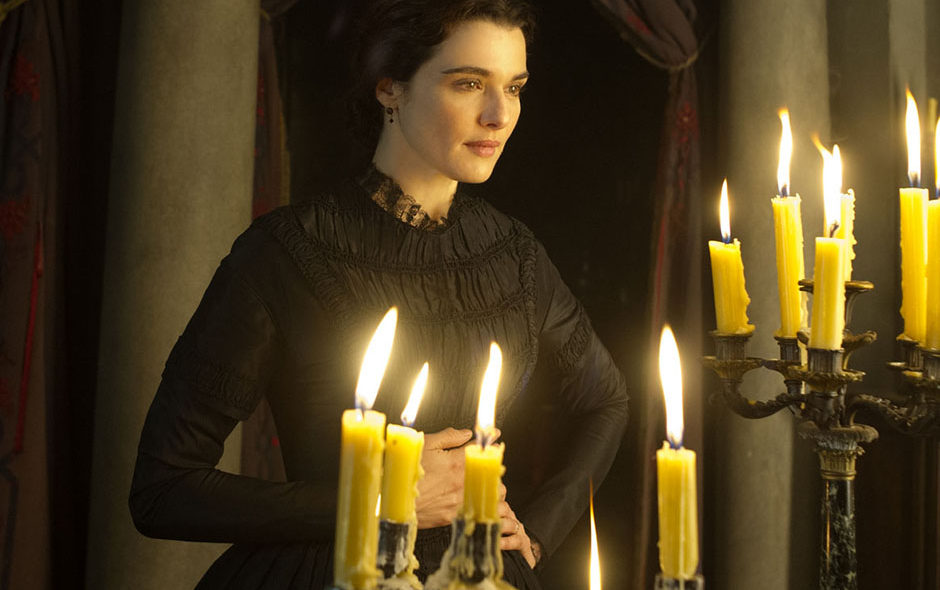The new film adaptation of Daphne Du Maurier’s vexing period thriller My Cousin Rachel gives us a coy, sometimes over-dramatic treatment of the material, one that draws sharply into focus the petulant perspective of a young man raised with no maternal influence.
In 1800s northwest England, the educated, privileged Philip (Sam Claflin) misses the fraternal bond with his cousin Ambrose, who raised the orphaned Philip from childhood. When Ambrose’s ailing health following his marriage to his half-Italian cousin named Rachel (Rachel Weisz) leads to his death, Philip is immediately suspicious of this “cousin Rachel” despite the fact that he, not Rachel, is made heir to Ambrose’s estate. When the two meet, however, Philip becomes wholly infatuated with the charming, black-veiled widow.
Philip soon becomes mighty generous with his newfound wealth – despite warnings from his solicitor and godfather of rumours regarding Rachel’s past – by increasing her allowance, gifting her with family heirlooms without his godfather’s permission. The day before Philip’s 25th birthday, when the estate legally falls into his hands, he transfers the entirety of it to her name, naively assuming because of a brief sexual encounter that she will want to marry him.
Shocked, hurt and angered by Rachel’s eventual turn down, the man-child’s emotional pendulum swings back toward suspicion, having reason to believe Rachel’s special Italian tisanes caused his cousin’s death and that he is next in line. Of course, the thrilling aspect of showing a mystery entirely through one man’s perspective is the unknown motivations of the femme fatale.
Is Rachel really a cold-blooded gold-digger, or simply a grieving widow desiring financial freedom after the death of her beloved spouse? Director Roger Michell teases the viewer with this question. Instead of developing Rachel’s interior life, Michell chooses to focus entirely on the emotional rollercoaster that is Philip’s point of view.
Philip’s sheltered upbringing catches up to him in adulthood – his rude, dismissive treatment of his godfather Kendall’s (Iain Glen) daughter Louise (Holliday Grainger), for example, or his revenge on Rachel before the two meet, wherein he deliberately withholds her dinner and delays his homecoming just to be petty. So many of Philip’s interactions and reactions toward Rachel are so impolite, unwarranted and downright inexplicable that audience members sitting around me bewilderingly twitched in their seats. Meanwhile, Rachel is more than accommodating, simultaneously playing a somewhat maternal role and a romantic one.
Michell brings emotional realism to Philip’s perspective, which ensconce the viewer into seeing situations like an innocent game of cribbage as downright threatening. Claflin grows into the role as the film shows his range of reactions, his boyish facial features ever so slightly distorted at each perceived humiliation and rebuff, contrasts with the radiant glow he holds during his honeymoon period with Rachel.
The camera favours angled and conspicuously placed close-ups, with objects going in and out of focus, to elegantly depict Philip’s selective attention. But while the film invites us to admonish and laugh at the protagonist’s foolish behaviour, we’re never quite sure what Rachel’s intentions are, either. Weisz plays the titular character as a perfect Sphinx; her quick dominance of their circle could indicate a prowess for social engineering, or that she’s a well-adjusted society woman. Either way, My Cousin Rachel is a damning feminist critique of the status of women in 1800s England, one that demonstrates how the impulsive emotions of men can easily influence the direction of their lives.

